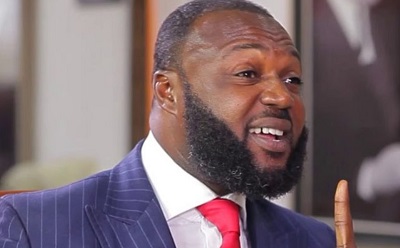The Commercial Division of the High Court in Accra has given Founder of defunct Capital Bank, Ato Essien, another chance to negotiate with the State on charges brought against him for his alleged involvement in the collapse of the Bank.
Ato Essien and three other former top executives of the collapsed entity; Fitzgerald Odonkor, Tetteh Nettey and Kate Quartey-Papafio, have been charged with 26 counts of criminal offenses including Stealing and Defrauding by false pretenses, for their respective roles in the bank’s collapse.
Last month, Mr. Essien told the Court presided over by a Justice of the Appeal Court, Eric Kyei Baffour, sitting as an additional High Court Judge, that he was willing to refund 27.5million Ghana Cedis which he is accused of using for business promotion for the charges against him to be dropped.
His Lawyer in May told the court that he has already paid 1.4million Ghana cedis of the amount. But the state, represented by a Chief State Attorney, Marina Appiah Oppong, rejected his payment plan, compelling him to present a second plan that is yet to be considered.
The case was thus adjourned to the 9th of July 2020, to allow for the two parties to conclude the negotiations.
Background
The prosecution, led by the Attorney-General (AG), Ms Gloria Afua Akuffo, accused the four persons of engaging in various illegal acts that led to the dissipation of the GH¢620 million liquidity support given to Capital Bank by the Bank of Ghana between June 2015 and November 2016.
It is the case of the AG that Essien, with Odonkor’s aid, transferred the liquidity support to certain companies either controlled by him or in which he had an interest.
According to the AG, GHS 130 million of the liquidity support was transferred to MC Management Services, which was later presented to the BoG as the initial capital to set up Sovereign Bank, another bank in which Essien had an interest.
She further alleged that between June and October 2015, Essien, aided by Odonkor, appropriated GH¢c27.5 million of the liquidity support by carrying it in jute bags.
“The money was purportedly used as payment for business promotion,” she told the court.
Ms Akuffo also accused Essien of giving some liquidity support to his cronies in the form of a loan to be used to buy shares in Capital Bank.
With regard to Quartey-Papafio, the A-G said as part of the scheme to further dissipate the GH¢620 million liquidity support, Essien transferred GHS 70 million of the money into Quartey-Papafio’s bank account at Cal Bank.
She further accused Quartey-Papafio of trying to withdraw the money in 2017, even though she was aware that Capital Bank had collapsed and was in receivership.
The withdrawal, the A-G submitted, was, however, prevented by the receivers of Capital Bank.
During his application for bail, counsel for Quartey-Papafio, Dr Dominic Ayine, a former Deputy A-G, rebutted the facts presented by the A-G.
He described the case as a ground-breaking one in the country’s jurisprudence.
“This is going to be the first case in the history of this country that stealing has occurred with the consent of the owner,” counsel contended.
Making his case, he argued that the GH¢620 million liquidity support was essentially a loan that was granted to Capital Bank by the BoG, which was supposed to be paid with interest.
“Essentially, this was money belonging to Capital Bank,” he said.
Counsel further submitted that per Section 60 of the Companies Act, 2019 (Act 992), there was nothing wrong with a lending institution giving out loans for people to buy shares in that institution.
Source: Citibusinessnews.com




